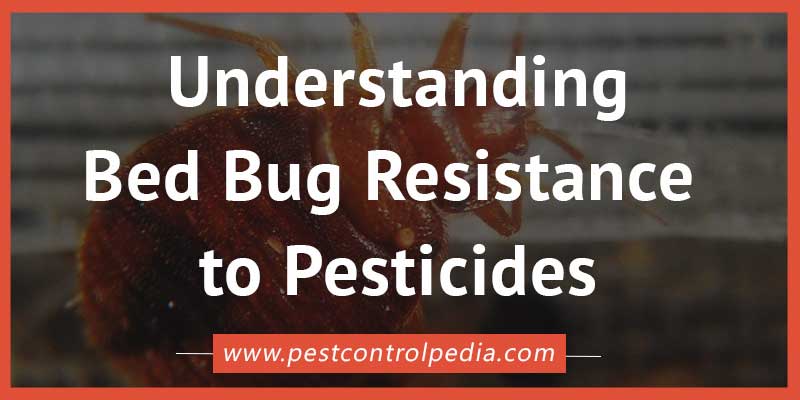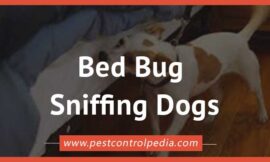Table of Contents
ToggleIntroduction to Bed Bugs and Pesticides
In the past few decades, bed bugs (Cimex lectularius) have become a prevalent household pest globally, with reports of infestations on the rise. These nocturnal insects feed on the blood of humans and animals, often causing discomfort, allergic reactions, and psychological distress. Pesticides have long been the primary method for controlling bed bug infestations due to their efficacy in eliminating these pests.
The Rise of Bed Bug Resistance
However, the indiscriminate use of pesticides has led to the emergence of resistance in bed bug populations. Various factors contribute to this resistance, including genetic mutations, behavioral adaptations, and natural selection pressure. Bed bugs possess a remarkable ability to develop resistance mechanisms against chemical agents, making it challenging for pest management professionals to eradicate infestations effectively.
Challenges Faced in Bed Bug Management
The development of resistance poses significant challenges in bed bug management. Conventional pesticides that were once highly effective are now less potent, requiring repeated applications or alternative methods for control. This not only increases the financial burden on homeowners and businesses but also raises concerns about the health and environmental impacts of prolonged pesticide use.
Current Strategies in Bed Bug Control
To address the challenges posed by pesticide resistance, pest management professionals are adopting integrated pest management (IPM) approaches. IPM emphasizes the use of multiple control tactics, including sanitation, heat treatment, vacuuming, and targeted pesticide application. By combining various methods, IPM reduces reliance on chemical pesticides and minimizes the risk of resistance development.
Innovations in Pest Control
In addition to IPM, researchers are exploring innovative technologies and alternative methods for bed bug control. Biopesticides, derived from natural sources such as bacteria, fungi, and plant extracts, offer promising solutions for managing resistant bed bug populations. These environmentally friendly alternatives provide effective control while minimizing the risk of resistance.
The Need for Collaborative Efforts
Addressing bed bug resistance requires collaborative efforts from various stakeholders, including researchers, pest control professionals, policymakers, and the general public. Interdisciplinary research is essential for understanding the underlying mechanisms of resistance and developing sustainable control strategies. Community engagement and education initiatives are also crucial for raising awareness and promoting proactive pest management practices.
Case Studies on Effective Control Measures
Several case studies highlight successful bed bug management programs that have effectively tackled resistance issues. These programs often involve a combination of IPM tactics, innovative technologies, and community involvement. By sharing success stories and lessons learned, stakeholders can glean valuable insights into effective pest control strategies.
Future Directions in Bed Bug Management
Looking ahead, the future of bed bug management lies in sustainable and integrated approaches that minimize reliance on chemical pesticides. Research priorities include investigating new control methods, understanding the genetics of resistance, and developing predictive tools for monitoring bed bug populations. By embracing innovation and collaboration, we can overcome the challenges posed by bed bug resistance and ensure effective pest management for years to come.
Conclusion
In conclusion, understanding bed bug resistance to pesticides is crucial for effective pest management. By adopting integrated approaches, exploring innovative technologies, and fostering collaboration, we can overcome the challenges posed by pesticide resistance and ensure sustainable solutions for bed bug control.
FAQs
How do bed bugs develop resistance to pesticides? Bed bugs can develop resistance through genetic mutations, behavioral adaptations, and natural selection pressure, which allow them to survive exposure to chemical agents.
What are some alternative methods for bed bug control? Alternative methods for bed bug control include heat treatment, vacuuming, steam cleaning, and the use of biopesticides derived from natural sources.
Why is integrated pest management (IPM) important in bed bug control? IPM combines multiple control tactics to reduce reliance on chemical pesticides, minimize the risk of resistance development, and ensure effective long-term management of bed bug infestations.
What role do community engagement and education play in bed bug management? Community engagement and education initiatives are essential for raising awareness about bed bug infestations, promoting proactive pest management practices, and fostering collaboration among stakeholders.
What are the future research priorities in bed bug management? Future research in bed bug management focuses on investigating new control methods, understanding the genetics of resistance, and developing predictive tools for monitoring bed bug populations.



